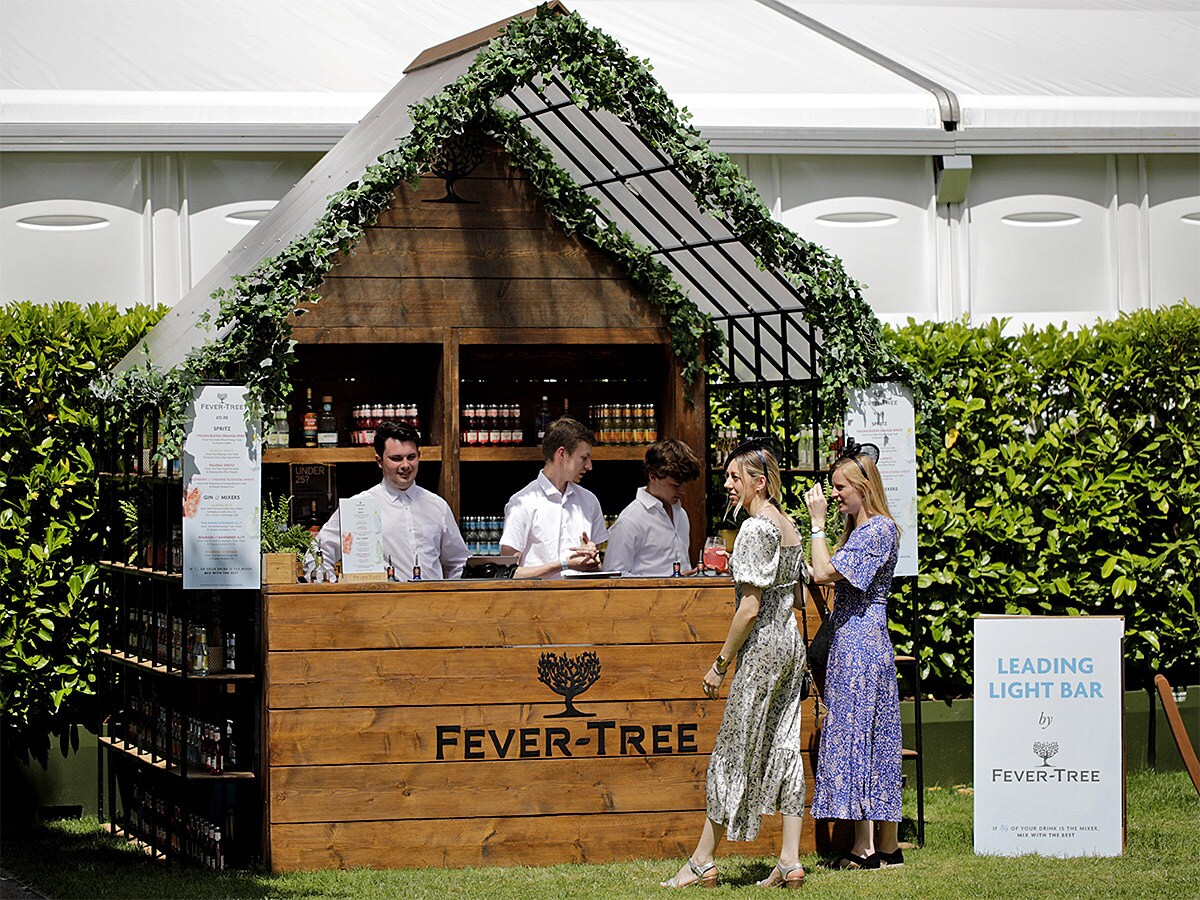Beverage brand Fever-Tree has grown rapidly since its listing in 2014, becoming the largest tonic water brand in the US. While shares in the company have tumbled so far in 2022 as a result of rising costs, revenue and market share remain strong.
The Fever-Tree [FEVR.L] share price tumbled after the drink maker lowered its annual profit forecast by one-third. The company has suffered rising costs and labour shortages over the past few months, which resulted in the revised earnings predictions.
Fever-Tree shares fell 27.7% on 15 July following the company cutting its profit forecast. Despite a small rebound since then, shares are still down 59.1% from the beginning of the year to 27 July.
The company had reduced its full-year earnings forecast from between £63m and £66m to between £37.5m and £45m, as “headwinds prevalent across the industry have significantly worsened in recent months”. The company has seen a slowdown in production as staff shortages hit US operations, while restricted glass availability and higher general cost pressures are adding further woes.
Competitors in the drinks industry Coca-Cola [KO] and Pepsi [PEP] have both outperformed Fever-Tree shares so far this year. Coca-Cola, often regarded as a recession-proof stock, is up 8% year-to-date as of 27 July, while Pepsi has stayed relatively flat, up 0.1% over the same period.
Fever-Tree was one of the UK’s most exciting growth shares for several years, with its shares growing by over 2,240% to around 3,860p in the four years after its listing in 2014. This growth was supported by strong demand for gin in the UK, which drove sales of Fever-Tree’s tonic water. However, even before the recent fall in the share price, the company was on a downward trend as global lockdowns closed restaurants and bars and reduced demand for the mixers.
Rising costs despite strong demand
In its half-year trading update on 15 July, Fever-Tree noted that rising costs will lower gross margins to around 37% this year. This is down from the 42.1% and 46.2% gross margins seen in 2021 and 2020, respectively.
A shortage in US labour supply has forced the company to shift much of its manufacturing to the UK. This has raised dependence on sea freight, which has seen rates increase by up to 50% since the start of the year and has also caused operating costs to rise.
Despite the rise in operating costs, Fever-Tree’s revenue and market share have both remained strong. Revenue grew 14% in the first six months of the year to £161m, and the company is maintaining its full-year guidance of between £355m and £365m.
It is also estimated that Fever-Tree has overtaken Schweppes as the largest tonic water brand in the US. The company currently has a 26% market share compared with 25% for Coca-Cola-owned Schweppes. European revenue was up 27% for the first half of the year as the company expanded its brand presence further through the region.
Despite the immediate challenges that lay ahead, management has kept a positive outlook. The company expects demand to remain strong over the next few years and it is confident that most of the higher costs are only "transitory in nature".
Analysts split over Fever-Tree rating
The recent slash to the Fever-Tree share price has stimulated insider buying from senior management. Co-founder and CEO Tim Warrillow bought £1m in shares in the company at a price of 870p after the dramatic cut in valuation. Alongside this, chairman Bill Ronald bought £99,500 worth of shares at 872p.
This buying spree has instilled confidence in shareholders that the management team is confident in the outlook for the company, and they are willing to put the money where their mouths are. The share price has since risen back above 1,000p.
However, there are many challenges that Fever-Tree shares are facing, which out of the company’s control. If the current tight US labour market loosens and the cost of freight shipping falls, the company could be in a very good place to profit off strong demand.
Analysts are generally split over Fever-Tree shares. Out of 20 analysts polled by the Financial Times, three have a ‘buy’ rating, two ‘outperform’, 13 ‘hold’ and the remaining two believe the company will ‘underperform’. From 19 analysts offering 12-month price targets, the medium was 1,000p. This is only slightly under the price of 1,025p where the shares traded on 27 July.
Disclaimer Past performance is not a reliable indicator of future results.
CMC Markets is an execution-only service provider. The material (whether or not it states any opinions) is for general information purposes only, and does not take into account your personal circumstances or objectives. Nothing in this material is (or should be considered to be) financial, investment or other advice on which reliance should be placed. No opinion given in the material constitutes a recommendation by CMC Markets or the author that any particular investment, security, transaction or investment strategy is suitable for any specific person.
The material has not been prepared in accordance with legal requirements designed to promote the independence of investment research. Although we are not specifically prevented from dealing before providing this material, we do not seek to take advantage of the material prior to its dissemination.
CMC Markets does not endorse or offer opinion on the trading strategies used by the author. Their trading strategies do not guarantee any return and CMC Markets shall not be held responsible for any loss that you may incur, either directly or indirectly, arising from any investment based on any information contained herein.
*Tax treatment depends on individual circumstances and can change or may differ in a jurisdiction other than the UK.
Continue reading for FREE
- Includes free newsletter updates, unsubscribe anytime. Privacy policy





